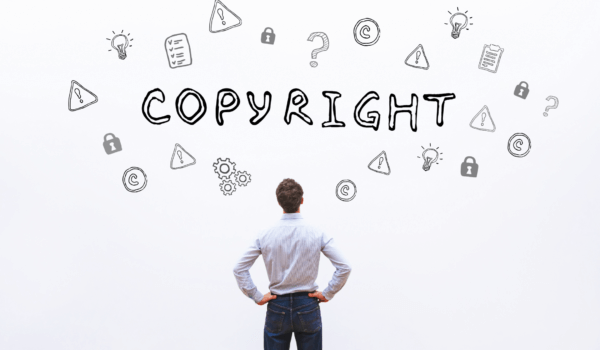
With so many businesses now having an online presence through a website and/or social media, many have turned to digital sources to gain access to images labeled as ‘free’ to catch the attention of prospective clients and customers. As more companies utilize these sources, it’s important to be aware of potential intellectual property violations and penalties – including copyright infringement. While an image may be labeled ‘free,’ that doesn’t necessarily mean it’s available for anyone to use in any way at any time. Having a good understanding of copyright infringement and what truly constitutes a ‘free’ image can help business owners avoid potential copyright infringement disputes.
Copyright Infringement and ‘Free’ Images
Copyright infringement is the use or production of protected materials without the permission of the copyright holder. When a third party infringes upon the rights afforded to the copyright holder – such as the right to exclusive use of a work for a set period of time – copyright infringement has occurred. While copyright infringement most often occurs with movies, music, and television, claims regarding the improper use of images found online are becoming incredibly common.
While there are plenty of sources online that allow users to download allegedly free images, it’s important to read the fine print on these websites, as it is unlikely that the images are in fact free to use. Most images have some sort of copyright attached to them, meaning that if a business decides to use an image it found through a search engine or on a website without purchasing the rights to it, it could face legal repercussions.
In order to understand whether an online image is available to use, it’s important to understand the following terms:
Royalty-Free
If an image is labeled as ‘royalty free,’ that does not mean it’s free for anyone to use. This is because the ‘free’ in a royalty-free means that there is a one-time paid license to use the image. Royalty-free means that those who pay for the license can use the image without also paying any additional fees (or royalties) based on the number of times it is used.
Commercial Use
Commercial use of an image means that the image can be used directly or indirectly in the marketing and promotion of a product that results in some form of monetary game. Essentially, if a business is using an image to get potential customers interested in making a purchase or visiting the company’s website that results in a sale of some kind, then it would be considered commercial use.
Non-Commercial Use
The non-commercial use of an image can be for educational or personal projects that are not going to be marketed, promoted, or sold for monetary gain. Some uses of non-commercial images include presentations, research papers, holiday greeting cards, etc.
Labeled for Reuse
If an image is labeled for reuse, then that image can be used for any non-commercial purposes as specified within the license.
Fair Use and Copyright Infringement
When it comes to avoiding copyright infringement, the doctrine of fair use can help business owners. Generally, the rule is that others cannot use a copyrighted image without the consent or authorization of the image owner; however, under The Copyright Act of 1976, fair use allows someone other than the copyright owner and its licensees to use a copyrighted image without authorization. Section 107 does not establish specific criteria; rather, it sets out guidelines that enable copyright owners, users, and courts to determine whether or not a particular use constitutes a fair use.
In order to determine if fair use is applicable, the following four factors must be determined:
- The purpose and nature of the use of the image
- The nature of the copyrighted work
- The amount and substantiality of the portion taken – the less of an image that is taken, the more likely it will be excused as a fair use
- The effect of the use upon the potential market, whether or not the use of an image deprives the copyright owner of income or undermines a new or potential market for the copyrighted image; depriving a copyright owner of income will invalidate fair use and very likely trigger a lawsuit
Houston Commercial Litigation Attorneys
Instances involving copyright infringement or other forms of intellectual property infringement are all too common. Despite this, it’s incredibly important that business owners are aware of the different ways they may unknowingly violate intellectual property laws. Because these laws are often complex, the attorneys at Feldman & Feldman can provide business owners with the knowledge and insight to avoid a dispute. If your business needs assistance with a potential intellectual property dispute, contact us today to learn more about how we can help.
